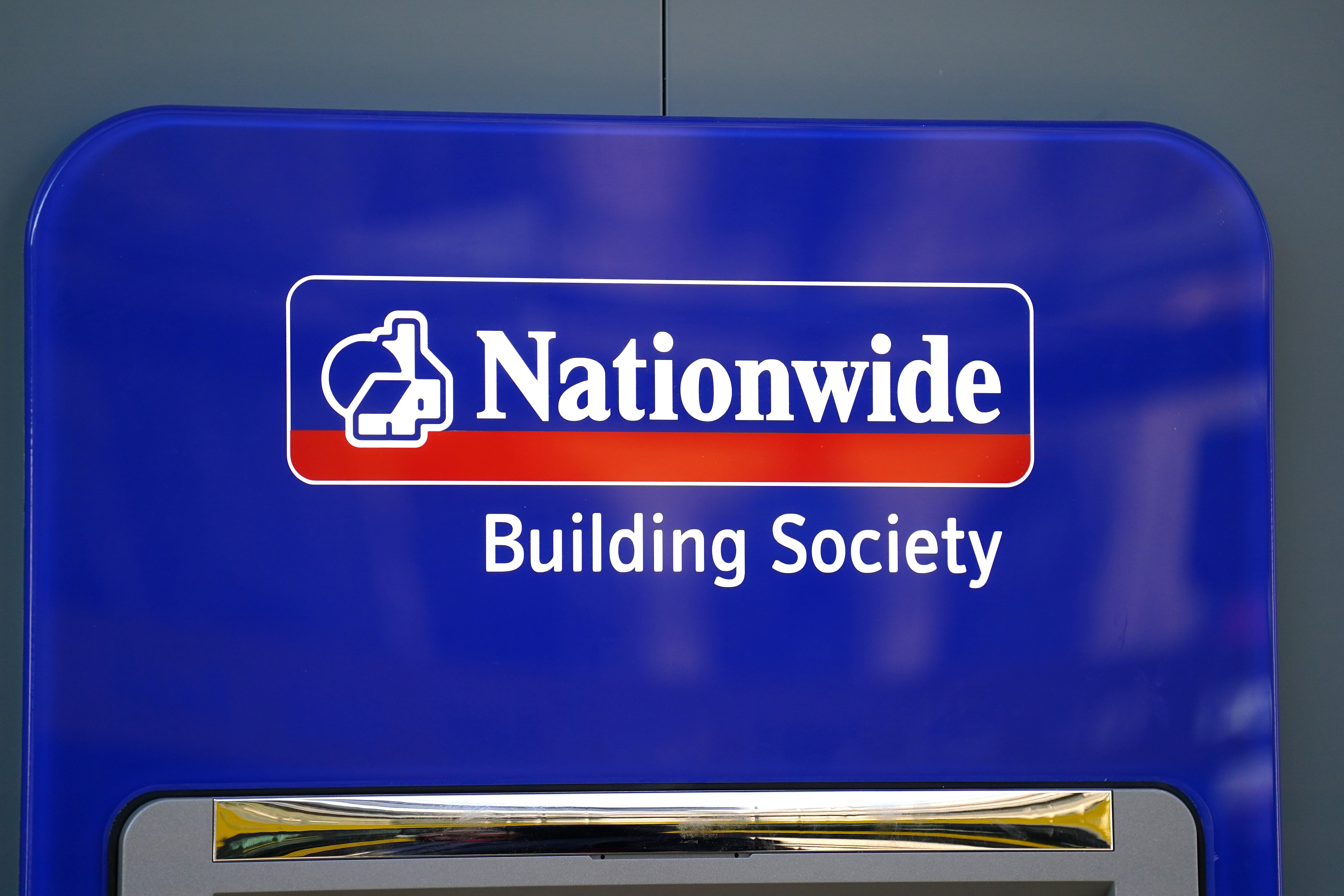Nationwide increasing some mortgage rates for new borrowing from Friday
The building society said the move will ensure its mortgage rates remain sustainable in the current economic environment.

Britain’s biggest building society is increasing some of its mortgage rates for new borrowing from Friday, saying this will ensure its rates “remain sustainable” in the current economic environment.
The rate increases, of up to 0.45 percentage points, only affect customers taking out a new mortgage deal.
For first-time buyers and those looking to move home, rates will increase by between 0.05 percentage points and 0.40 percentage points on products up to 95% loan-to-value (LTV).
For those looking to remortgage, rates will increase by between 0.05 percentage points and 0.40 percentage points on products up to 90% LTV.
In the current economic environment, swap rates have continued to fluctuate and, more recently, increase, leading to rate rises across the market. This will ensure our mortgage rates remain sustainable
Switcher, additional borrowing and existing customer moving home rates will increase by between 0.05 percentage points and 0.45 percentage points, while shared equity rates will increase by up to 0.45 percentage points.
Earlier this week, Office for National Statistics (ONS) figures showed that inflation slowed to 8.7% in April, although the fall had been expected to be far greater, with experts pencilling in a drop to 8.2% in April.
Swap rates, which are used by lenders use to price mortgages, have been rising and some other lenders have also been tweaking their mortgage rates upwards.
Mark Harris, chief executive of mortgage broker SPF Private Clients, said: “Given that inflation has come down, the market reaction has been surprising, with swaps, which underpin the pricing of fixed-rate mortgages, rising sharply.
“The markets have reacted negatively on the back of expectations as to where inflation would be by now, versus the reality.
“Fixed-rate mortgage pricing had already been rising with a number of lenders repricing recently or giving a heads up that they intend to do so.
“Santander and Halifax are just two lenders who have recently increased their rates and others are likely to follow suit, with short notice.
“The markets’ assessment of where interest rates are heading has been consistently wrong over the past nine months.
“Swaps can be extremely volatile and this is likely to be a knee-jerk reaction before they settle down.”
Mr Harris added: “We remain confident mortgage rates will shortly peak and the reductions, when they arrive, will be as quick as the recent rises.”
These increases by Nationwide come at a time of volatility surrounding future interest rates, and it is a move we have seen from other lenders through uncertain times as they adjust their pricing
A Nationwide spokesperson said: ”In the current economic environment, swap rates have continued to fluctuate and, more recently, increase, leading to rate rises across the market. This will ensure our mortgage rates remain sustainable.”
Nationwide recently launched a fairer share bond paying 4.75%, which is available to all the Society’s 16 million members.
Last week, the Society announced that around 3.4 million of its members are in line for a £100 windfall, to be distributed to eligible members holding a qualifying current account plus either a qualifying savings or mortgage product.
Financial information website Moneyfacts said that it had seen some mortgage product withdrawals as well as rate increases this week.
According to its figures, the average two-year fixed-rate mortgage on the market is 5.34% and the average five-year fix is 5.01%. At the start of April, these figures were 5.35% and 5.05% respectively.
Rachel Springall, a finance expert at Moneyfacts said: “These increases by Nationwide come at a time of volatility surrounding future interest rates, and it is a move we have seen from other lenders through uncertain times as they adjust their pricing.
“Just a few weeks ago, it was widely expected that fixed mortgage rates would reduce over the next few months, but it is impossible to predict such rate movements as pricing is determined by fluctuating swap rates and lenders’ appetite for business.
Borrowers with an eye on a fix will want to move fast as rates could come and go quickly
“When lenders withdraw mortgage products, it can be in reaction to interest rate volatility, or even down to demand.
“However, withdrawals may influence other lenders to follow suit and reconsider their own propositions.
“Anyone considering a new mortgage would be wise to seek advice to go over the full package of any deal to find the right deal for them.”
David Hollingworth, from broker L&C Mortgages, said Nationwide’s move is “significant”, as a major lender.
He said: “We’ve already seen fixed rates edging up in recent weeks.”
Mr Hollingworth added: “Borrowers with an eye on a fix will want to move fast as rates could come and go quickly.”
Bookmark popover
Removed from bookmarks